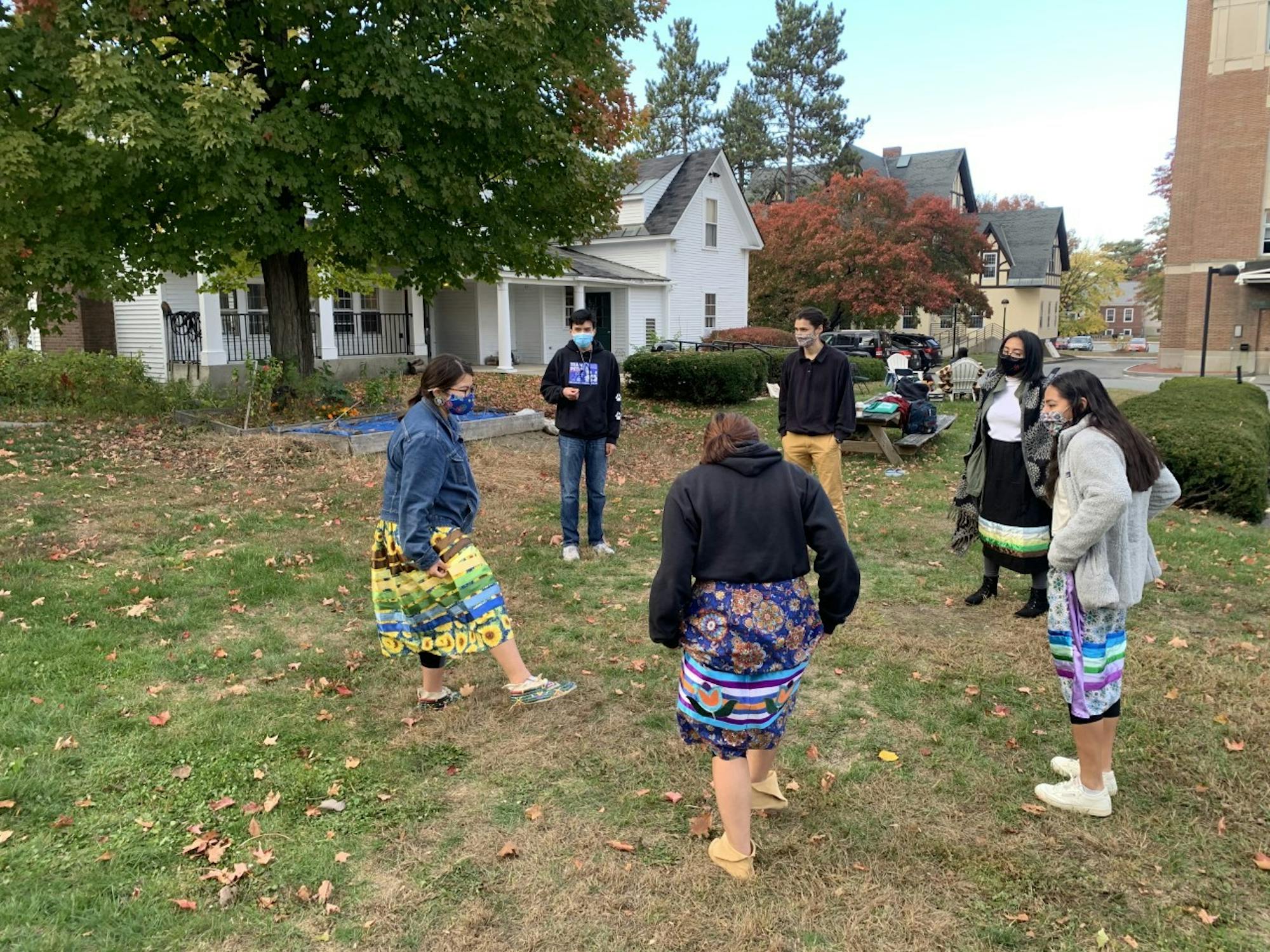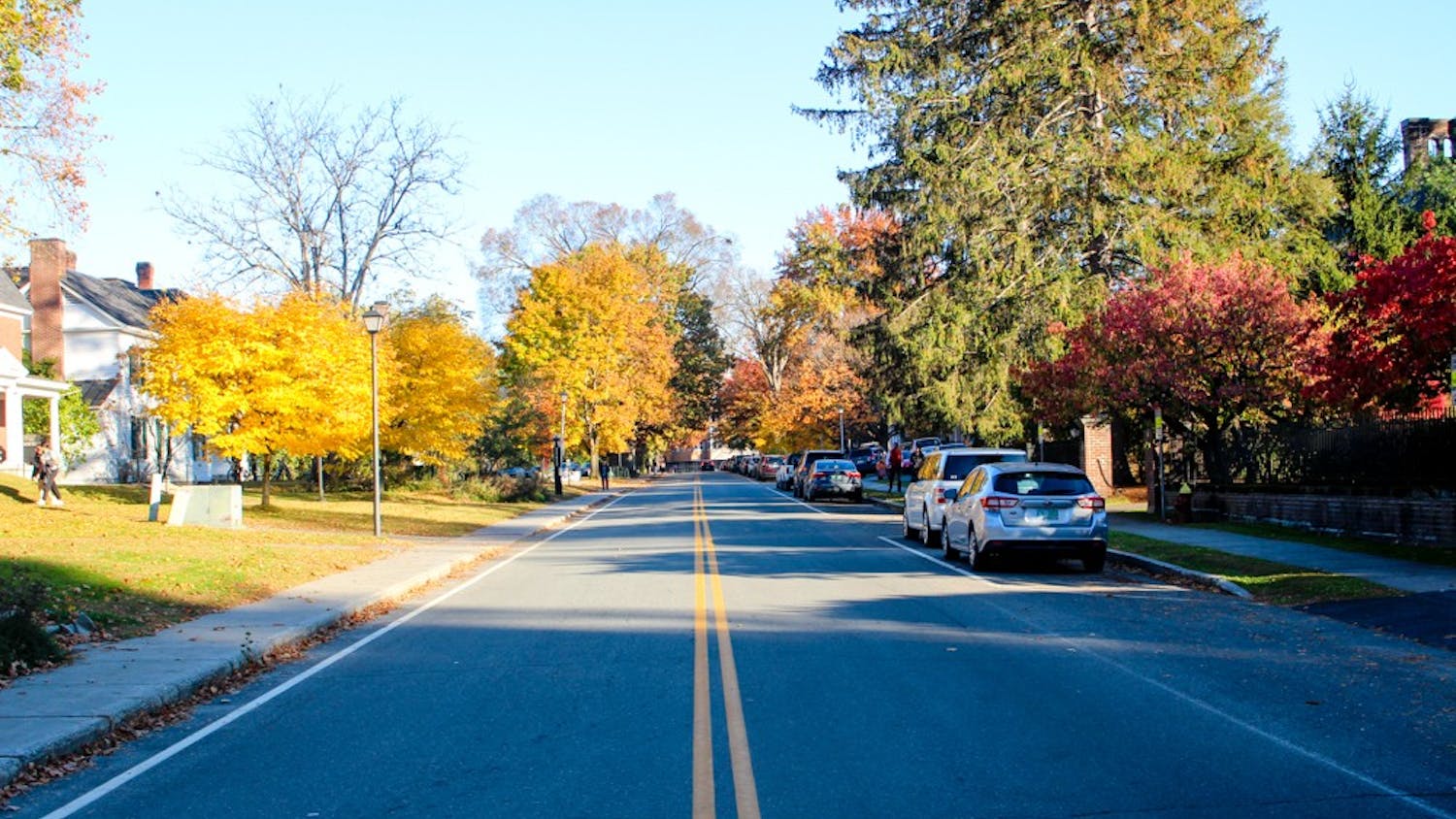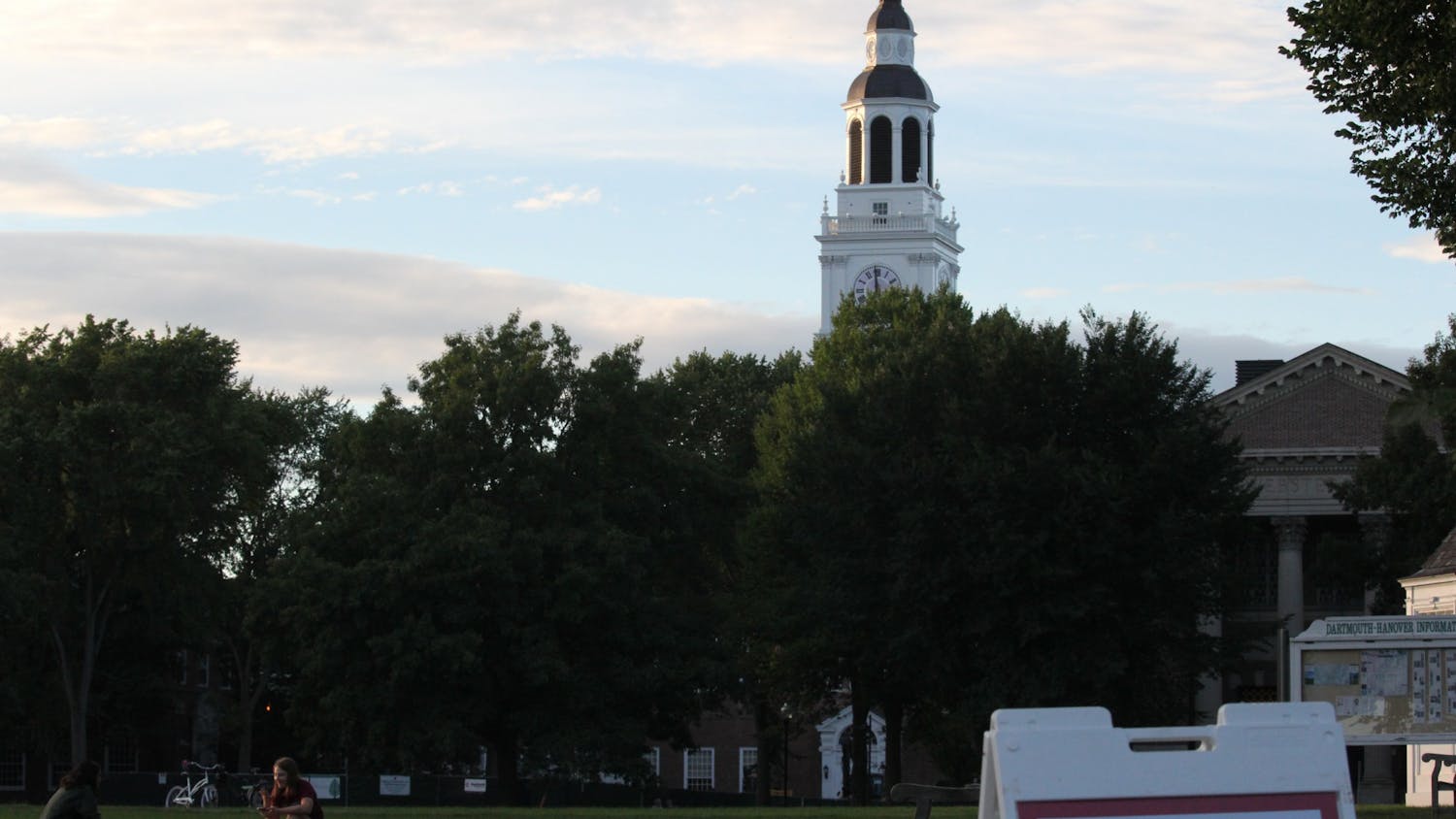Updated Oct. 15, 2020 at 2:11 p.m.
This year's celebration of Indigenous Peoples’ Day and Month at Dartmouth features more than a dozen events related to Indigenous health and wellness, a theme especially relevant during the pandemic, which has disproportionately impacted Indigenous Americans.
Events began on Oct. 8 with a panel discussion celebrating Indigenous leaders in STEM fields. On Oct. 12 — Indigenous Peoples’ Day, a counter-celebration to Columbus Day — — environmental studies and Native American studies professor Nicholas Reo hosted a discussion about health and wellness in Indigenous communities. The Upstander Project, a documentary filmmaking company, also offered a free screening of “Dear Georgina” and “Dawnland,” both Emmy Award-winning films about state and tribal relations, the latter of which was co-produced by Native American studies professor N. Bruce Duthu.
Reo, a member of the Sault Ste. Marie Tribe of Chippewa Indians, spoke to the importance of recognizing the original peoples of the places where one visits, lives and attends school in a pre-recorded video posted online and to social media.
“As visitors and as residents … in Indigenous homelands, what can we do to contribute to the health and wellness of the original peoples of that area?” Reo asked in the video.
Reo said that minimizing travel and staying home as much as possible is important to prevent the spread of diseases to Indigenous peoples.
According to Native American Program director Sarah Palacios, the NAP staff chose the theme for this year’s Indigenous Peoples’ Day — “Health and Wellness” — while reflecting on how the Indigenous arts community has encouraged the use of masks by using materials and designs from tribal communities.
She said that in thinking about the importance of representation especially within the health and wellness sphere, the group decided to focus on the “many spaces and ways in which Indigenous people are demonstrating personal and community agency when it comes to their health.”
Co-president of Native Americans at Dartmouth Alayah Johnson-Jennings ’21, said that Indigenous Peoples’ Day took a different form at Dartmouth this year due to health concerns. She said that in past years, NAD has hosted a bonfire, a drum circle on the Green at midnight and several community gatherings. In addition, the NAD program has historically hosted prospective Indigenous students on campus the week prior to Indigenous Peoples’ Day, a tradition that took place virtually this year. Johnson-Jennings said that in past years, protests in solidarity with Indigenous peoples and the Missing and Murdered Indigenous Women movement have also taken place around campus.
This year, the NAD program also hosted an event at the Native American House where students used herbs from the house’s garden to craft various balms and medicines. Additionally, Johnson-Jennings said that the Native American House hosted a fire outside as a “time to reflect.”
Erin Bunner ’22, an Indigenous student peer advisor, said that students also wrote phrases like “You're on Indigenous land” and “Columbus did not discover America” on campus sidewalks with chalk, an activity that has historically taken place during Indigenous Peoples’ Month.
Bunner added that signs were placed around campus to acknowledge the names of the first Indigenous students who graduated from Dartmouth.
Johnson-Jennings said that NAD also held virtual activities for Indigenous Peoples’ Day, including an Instagram challenge where students could make posts about their favorite words in their language.
Bunner said she helped to plan an upcoming Indigenous Peoples’ Month event discussing and celebrating the many ways that Indigenous community members are maintaining their health and well-being through motion.
“We are going to talk about how this contemporary concept of exercise [and how] there’s many different ways that you can be healthy,” Bunner said. “Many of those are through Indigenous practices like gardening, horse riding or dancing at powwows or ceremonies.”
Palacios said the program has worked in tandem with student groups like Native Americans at Dartmouth and Hokupa`a — a group for students from or connected to the Pacific Islands — to coordinate greater recognition of Indigenous people on campus.
Palacios said that Dartmouth has not officially recognized Indigenous Peoples’ Day, although she added that it is unclear if a request has been submitted to the College.
“I’d love to see that from Dartmouth, I’d love to see that from Hanover and Lebanon,” Palacios said in regards to recognizing Indigenous Peoples’ Day.
College spokesperson Diana Lawrence wrote in an email to The Dartmouth that "Dartmouth recognizes Indigenous Peoples Day in its programming and on its institutional news channels."
Other institutions, including Columbia University, have passed resolutions officially recognizing Indigenous Peoples’ Day. Additionally, 14 states formally recognize Indigenous Peoples’ Day in place of Columbus Day. New Hampshire is not one of them, though various New Hampshire towns and schools do formally recognize and celebrate the day.
Indigenous Peoples’ Month programming at Dartmouth will continue through mid-November.
On Oct. 16, the NAP will host a virtual discussion on ways that Indigenous community members maintain well-being through motion. On Oct. 29, Well For Culture, an Indigenous-owned business, will host a virtual conversation, and on Nov. 12, Hop at Home will host drag performer J Miko Thomas for a performance incorporating traditional and contemporary Indigenous storytelling.





